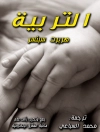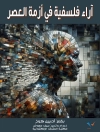The Palgrave Handbook of German Idealism and Poststructuralism offers a wide-ranging dialogue between theory and German Idealism, joining up the various lines of influence connecting German Idealist and Romantic philosophies in all their variety to post-’68 European philosophies, from Derrida and Deleuze to Žižek and Malabou.
Key features:
- Provides in-depth reflections on the various conversations between German Idealism and theory, including an expanded canon of Idealist philosophers and a wide range of contemporary anti-foundationalist thinkers. Includes marginalized voices and concepts that reflect both contemporary concerns as well as the sheer abundance of readings of German Idealism undertaken by European theorists over the last fifty years.
- Expands the existing scholarship by focusing on new, future directions emerging out of the idealism-theory relationship.
The Palgrave Handbook of German Idealism and Poststructuralism is essential reading for researchers and students of all levels — from senior scholars to advanced undergraduates — working on the legacy of German Idealist philosophers within philosophy departments, as well as all those interested in theory from across the humanities.
Jadual kandungan
Part I Reading the German Idealists After’681.- Reading Kant.- Reading Fichte.- Reading Maimon.- Reading Novalis and the Schlegels.- Reading Hölderlin.- Reading Hegel I: Textuality and the Phenomenology.- Reading Hegel II: Politics and History.- Reading Schelling.- Reading Schopenhauer.- Part II Themes and Concepts.- Systems of Knowledge.- Psychoanalysis.- Art.- Nature and Extinction.- Language.- Difference .- Nothing.- Apocalypse.- The University.- Enlightenment and Revolution .- Sovereignty and Community.- Part III Contemporary Stakes.- Felix Culpa, Dialectic and Becoming-Imperceptible .- Monism and Mistakes.- Editors’ Conclusions: The Past, Present, and Future of the Theory–German Idealism Relation.
Mengenai Pengarang
Tilottama Rajan is Distinguished University Professor and former Director of the Centre for Theory and Criticism at the University of Western Ontario.
Daniel Whistler is Professor of Philosophy at Royal Holloway, University of London.












